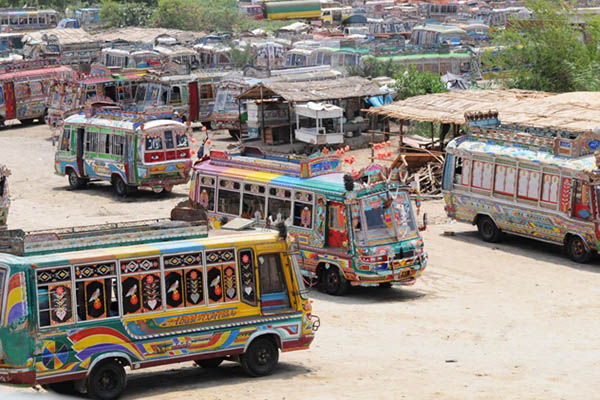
File photo
Punjab and Khyber-Pakhtunkhwa have restored services at the behest of Prime Minister Imran Khan
While the Punjab and Khyber-Pakhtunkhwa governments have allowed public transport services to resume under social distancing guidelines, the Balochistan government on Monday said the decision risked spreading the novel coronavirus to remote regions of the province, as Sindh stuck to its decision to resume transport three days after Eidul Fitr.
A meeting of the Balochistan government, led by Chief Minister Jam Kamal Khan, said resuming road and rail services without proper standard operating procedures to curb the spread of COVID-19 “would cause the spread of COVID-19 in villages and remote parts of the province.”
Appealing to citizens to avoid any travel at this time, the chief minister advised people to avoid visiting provincial capital Quetta at this time. “The number of infected persons is far more in Quetta [than other parts of Balochistan], who could then infect other people coming outside of Quetta,” he said.
Per an official of the Pakistan Railways, only one train—the Jaffar Express from Quetta to Rawalpindi—would be operated in Balochistan from Wednesday. He said the Quetta Express and Bolan Mail would remain suspended.
Earlier, public transporters in Balochistan had refused to implement the government’s proposed SOPs for resumption of services, saying they would not reduce fares or limit the number of passengers. The détente has forced the ban on public transport—imposed on March 24—to continue indefinitely.
Sindh
In Sindh province, Transport Minister Awais Qadir Shah said the government had decided to resume public transport three days after the upcoming Eidul Fitr, adding that there would be no relaxation prior to the festival.
“The government is preparing guidelines to reopen inter-city and inter-district transport in the province,” he said, adding that a four-point summary had been forwarded to the chief minister aimed at providing relief to transporters.
Authorities in Sindh have resisted Prime Minister Imran Khan’s desire to see public transport resume thus far, warning the spread of the novel coronavirus could worsen if SOPs are not followed. However, lawmakers admit, they cannot resist much longer, as pressure is increasing from various interest groups due to Punjab and Khyber-Pakhtunkhwa restoring services.
Punjab
Officially, inter-city and intra-city public transport in the province resumed on Monday, but many routes remained unofficially suspended as transporters said the guidelines issued would deliver negligible profits. These guidelines include a reduction in fares and a ban on allowing any elderly person or children to travel in crowded buses. Similarly, all vehicles have to be disinfected after every trip.
Meanwhile, the routes that were operating saw flagrant violations of social distancing guidelines, with neither drivers nor passengers wearing face masks, and little evidence of transporters trying to reduce capacity to 50% or lower to allow for physical distancing.
Khyber-Pakhtunkhwa
While all inter- and intra-district public transport services resumed in Khyber-Pakhtunkhwa on Monday, there was little to no concern given to violations of social distancing guidelines.
Scenes from the province show drivers and conductors with no face masks despite it being mandatory. Similarly, few physical distancing measures were adopted, as people could be seen filling buses to capacity in some areas without any penalties.
Khyber-Pakhtunhkwa Adviser on Information and Public Relations Ajmal Wazir on Monday said that public transport fares had been reduced by 18 to 25 percent in the province to pass on the benefit of a reduction in fuel prices to the consumer. He also warned that strict action would be taken against anyone found violating social distancing SOPs, but there has been little visibility of these measures on the ground.
Prime Minister Imran Khan, last week, appealed to all provincial governments to immediately resume public transport services, claiming the bans were hampering the ability of the impoverished to earn livelihoods. His desire comes as the confirmed cases of the COVID-19 in the country have reached 43,966, with 939 deaths and 12,489 recoveries, leaving 30,538 active cases.
